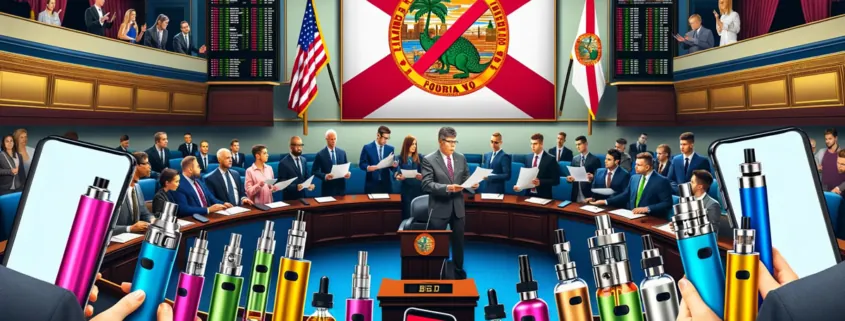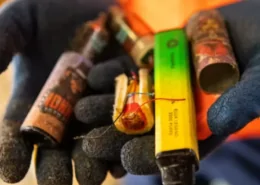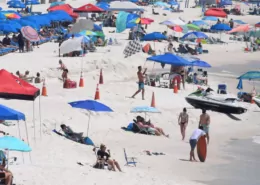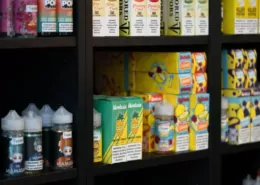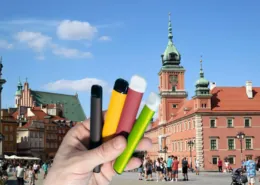Florida Bans Flavored Disposable Vapes, Exempts E-Liquids
The Florida Legislature has passed a compromise bill that prohibits the sale of certain flavored single-use vape products while preserving access to refillable vapes and e-liquids. The amended measure, HB 1007, aims to curb youth vaping without completely eliminating flavored options for adult users.
Shifting Focus to Single-Use Devices
The final version of HB 1007 underwent significant changes from its original form, which would have restricted sales to only FDA-approved tobacco-flavored vapes. After pushback from vape shop owners and consumer advocates, lawmakers narrowed the bill’s scope.
“This completely exempts, quote, open systems, (unquote), that vape shops specialize in,” explained bill sponsor Rep. Toby Overdorf (R-Palm City).
The amended legislation tasks the Department of Legal Affairs under Attorney General Ashley Moody with creating a list of disposable vape products deemed attractive to minors. Manufacturers and retailers will have 60 days to remove banned items from the market once they are added to the list.
Enforcement and Penalties
Starting January 1, 2025, the Department of Legal Affairs must publish and regularly update the prohibited products directory. Knowingly selling, shipping, or receiving banned disposable vapes will constitute a first-degree misdemeanor, punishable by up to one year in jail and $1,000 in fines.
From March 1, 2025, Manufacturers caught selling outlawed products will face steeper penalties of $1,000 per day for each offending device until it is withdrawn from the market. These rules apply to all entities selling or shipping disposable vapes into Florida.
Controversial Compromise
The evolving bill text and vague answers from sponsors caused confusion and concern among some lawmakers. When directly asked if the measure banned flavors, Rep. Overdorf repeatedly stated it was “silent on flavor.”
Critics argue this evasiveness obscured the bill’s true impact. Rather than instituting a blanket flavor ban, the amended version grants the Attorney General broad discretion to target specific disposable vapes.
Opponents fear this approach could lead to inconsistent enforcement and leave small businesses vulnerable to regulatory whims. Proponents counter that focusing on youth-enticing products balances public health with adult freedom of choice.
Imperfect Progress
While HB 1007 passed both chambers with overwhelming support, a handful of House Democrats dissented, citing frustration with the sponsor’s opaque communication on the flavor issue.
The bill’s winding path reveals the challenges of regulating a rapidly evolving industry. Lawmakers struggled to keep pace with new technology while weighing competing interests from public health advocates, small businesses, and consumers.
In its final form, HB 1007 represents an uneasy truce rather than an unqualified victory for either side of the vape debate. But supporters argue incremental progress beats inaction in the face of a youth vaping epidemic.
Looking Ahead
Assuming Governor DeSantis signs the bill, the disposable vape restrictions take effect October 1, 2024. The Department of Legal Affairs will have until 2025 to develop its initial list of banned products.
Vape manufacturers and retailers now face the complex task of navigating a patchwork of state-level flavor restrictions. Adult consumers may increasingly migrate to refillable devices and bottled e-liquids as more states target disposables.
But the regulatory battle is far from over. The FDA’s long-delayed decisions on vape marketing applications could drastically alter the national landscape and supersede state actions.
For now, Florida’s law represents a measured step toward reining in youth-appealing vapes while preserving some options for adults. Only time will tell if this delicate balance proves sustainable or merely a stopgap in the ongoing fight over flavored vaping.
- Minneapolis Sets $25 Minimum Price for E-Cigarettes - July 11, 2025
- Alabama Schools to Implement New Anti-Vaping Policies - July 11, 2025
- Is Vaping and Driving Illegal in Rhode Island? (2025 Guide) - July 10, 2025

